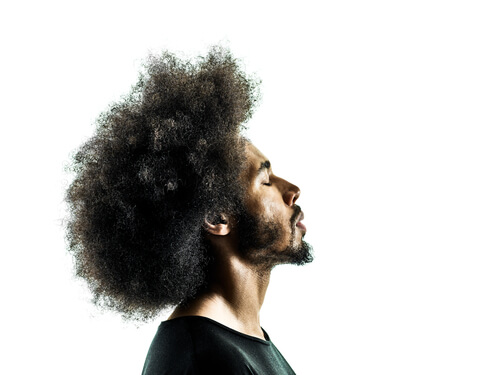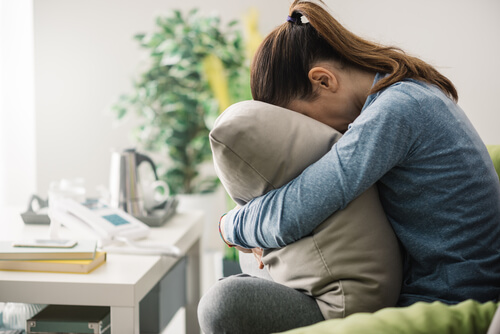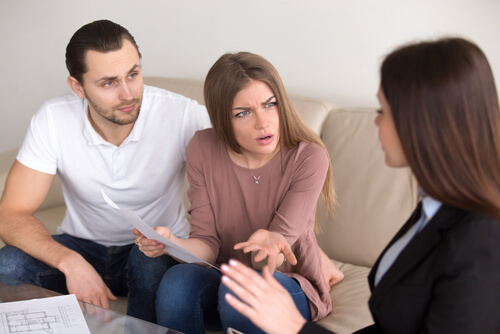Every relationship has its own unique ups and downs, trials and tribulations, mountains to climb and rivers to cross. Issues arise, problems get resolved, emotions deepen, grow, change, and evolve. Even partners in a close relationship go through different experiences and lead different lives, both together and apart.
However, what happens if one or both partners start experiencing anxiety in their relationship? How can you enjoy your relationship and the good times it brings if you’re constantly feeling uneasy and under pressure? And, most importantly – how can you hope to overcome it and start enjoying your relationship?
Love avoidance intensive workshops can help immensely. It can set you on the path to resolving all the uneasiness and anxiety you might be facing, and help both you and your relationship. You can also explore the potential reasons behind your relationship anxiety and methods for overcoming it before turning to professional advocates for help.
Why Am I Uneasy About My Relationship?

The feeling of uneasiness in a relationship is common. There comes a time in many relationships when one or both partners seem to struggle. These are the times when anxiety starts seeping in, making you feel restless and dissatisfied in your relationship. At these moments, you can even start losing sight of all the good aspects of your relationship and instead focus all your attention on the heavy negative emotions you are experiencing.
And this hits hard, extremely hard. Especially if you have, or had, few reasons to feel anxious about your relationship before. Smooth and pleasant sailing only to be greeted with a sudden perfect storm of anxiety towards your relationship and your partner? Why?
The reasons for this burst of relationship uneasiness can sometimes be sudden and unexpected. They can also be the result of long-standing growing unhappiness and emotional neglect that have culminated, making you feel this way. These are only some of the reasons behind relationship anxiety:
- Fearing your own emotional vulnerability
- A time in your life that is bringing about significant change (starting a family, retirement, etc.)
- Being exposed to negative and unhealthy family relationships when growing up
- Past wounds from lack of childhood affection from parents
- Aging
- Excessive build-up of stress
- Insufficient and improper communication with your partner
- Negative experience from previous relationships that ended in extreme emotional turmoil
- Fear of being negatively evaluated or not accepted by your partner
- Fear of your partner leaving you
What Is Relationship Anxiety?
In plain words, relationship anxiety is a prolonged feeling of constant worrying and excessive emotional negativity on your part. Relationship anxiety is not something that happens solely in bad and unhealthy relationships. It can happen even in the happiest of times. Which does not make it easier. Not at all.
Imagine having a loving and caring partner. You have understanding, emotional and physical intimacy, and everything seems to be going smoothly. Until it isn’t. You begin overthinking and worrying about different aspects of your relationship. Will these good times last? Is this really the person for me? Are they hiding a secret I don’t know?
This can further spiral out of control. Anxiety is difficult to deal with and overcome even in healthy and happy relationships. It is particularly challenging to recognize in relationships that are going through a rough patch. It’s hard, it’s physically and emotionally exhausting, and it prevents you from enjoying a good relationship, while making a bad one worse. This is relationship anxiety.
How Do You Know If You Have Relationship Anxiety?
Relationship anxiety is, at the same time, easy and difficult to detect. Why? Because it requires a good degree of becoming introspective and recognizing how you are feeling. You also need to be completely open and honest about yourself, and be able to take a step back, evaluate your own actions and feelings, and draw conclusions.
Telltale signs of relationship anxiety are easy to read, understand, and detect in others. Yet, it may be extremely difficult to see in yourself. Here are some of the most common signs that you might be anxious:
- Thinking about whether or not you matter to your partner
- Constantly doubting the feelings your partner has for you
- Worrying about your partner breaking up and leaving you
- Fostering doubts about the long-term compatibility of your relationship
- Sabotaging your relationship by
- Picking fights without an apparent reason
- Refusing to discuss obvious issues
- Putting relationship boundaries to the test
- Reading too much into your partner’s actions and words
- Focusing on the bad and not paying attention to the good
How Do I Fix Relationship Anxiety?
Fixing and overcoming relationship anxiety is a complex and lengthy process. You need to be prepared to take it in stages, take it slow, and take it head on. It can be difficult, it can be emotionally draining. However, know that the end is worth the struggles.
Qualified coaches are there to help you if you hit a rough spot, or you find yourself lingering without a solution to your anxiety. However, first try to pay attention to several things that can really help with alleviating your anxiety and getting you back on the path to healthy relationships:
- Be mindful, recognize when negative thoughts start piling up, and allow them to pass without holding on to them.
- Try to practice good and healthy communication with your partner. Use “I” statements, express your feelings, and be a good listener.
- Try not to immediately act on your negative thoughts and feelings. Process them, think them through, and act only when you’re certain they are more than an impulse.
PIVOT Has Created Love Avoidance Intensive Coaching That Can Help Resolve Anxiety In Your Relationship

Constantly feeling anxious and uneasy in your relationship is the complete opposite of the loving, caring, and freeing sensation you want and hope to have. That’s what makes relationship anxiety extremely difficult to deal with and successfully overcome. Everything becomes even more complicated when you take into account all the potential reasons behind it.
Sometimes, anxiety in your relationship can stem from constantly avoiding even the healthy forms of conflict, or from past traumas and problems with bonding in a relationship. On other occasions, the reasons behind your anxiety can be even more severe, such as withstanding ongoing emotional abuse from your partner. If you find yourself struggling to pinpoint the cause behind your constant feelings of unhappiness and anxiety, and if you need a way to overcome those negative and burdening emotions, turn to PIVOT. We organize individual workshops for resolving emotional issues in relationships, as well as group coaching sessions to help you overcome anxiety. We are here to give you the help and the support you need.



















